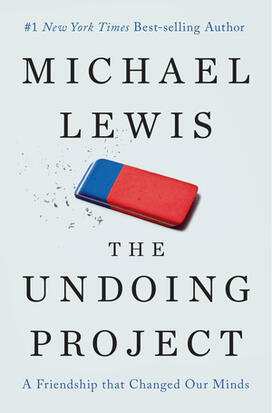Michael Lewis ’82’s New Book Explores a Legendary Partnership

The Undoing Project is the story of the partnership between Tversky and Kahneman. Though they may have seemed like an unlikely pair — Tversky was confident and extroverted, while Kahneman was introverted and diffident — they went on to have “one of the greatest partnerships in the history of science,” ultimately founding the field of behavioral economics. Kahneman, who won the Nobel Prize in economics in 2002, is professor emeritus of psychology and public affairs at the Woodrow Wilson School.
The author: Michael Lewis studied art history at Princeton. A writer and financial journalist, he is the author of 14 other books, including Flash Boys, The Big Short, The Blind Side, Moneyball, and Liar’s Poker.
Opening lines: “Back in 2003 I published a book, called Moneyball, about the Oakland Athletics’ quest to find new and better ways to value baseball players and evaluate baseball strategies. The team had less money to spend on players than other teams, and so its management, out of necessity, set about rethinking the game. In both new and old baseball data — and the work of people outside the game who had analyzed that data — the Oakland front office discovered what amounted to new baseball knowledge.”
Reviews: Malcolm Gladwell, author of The Tipping Point and Blink, says, “I read Lewis for the same reasons I watch Tiger Woods. I’ll never play like that. But it’s good to be reminded every now and again what genius looks like.”












No responses yet